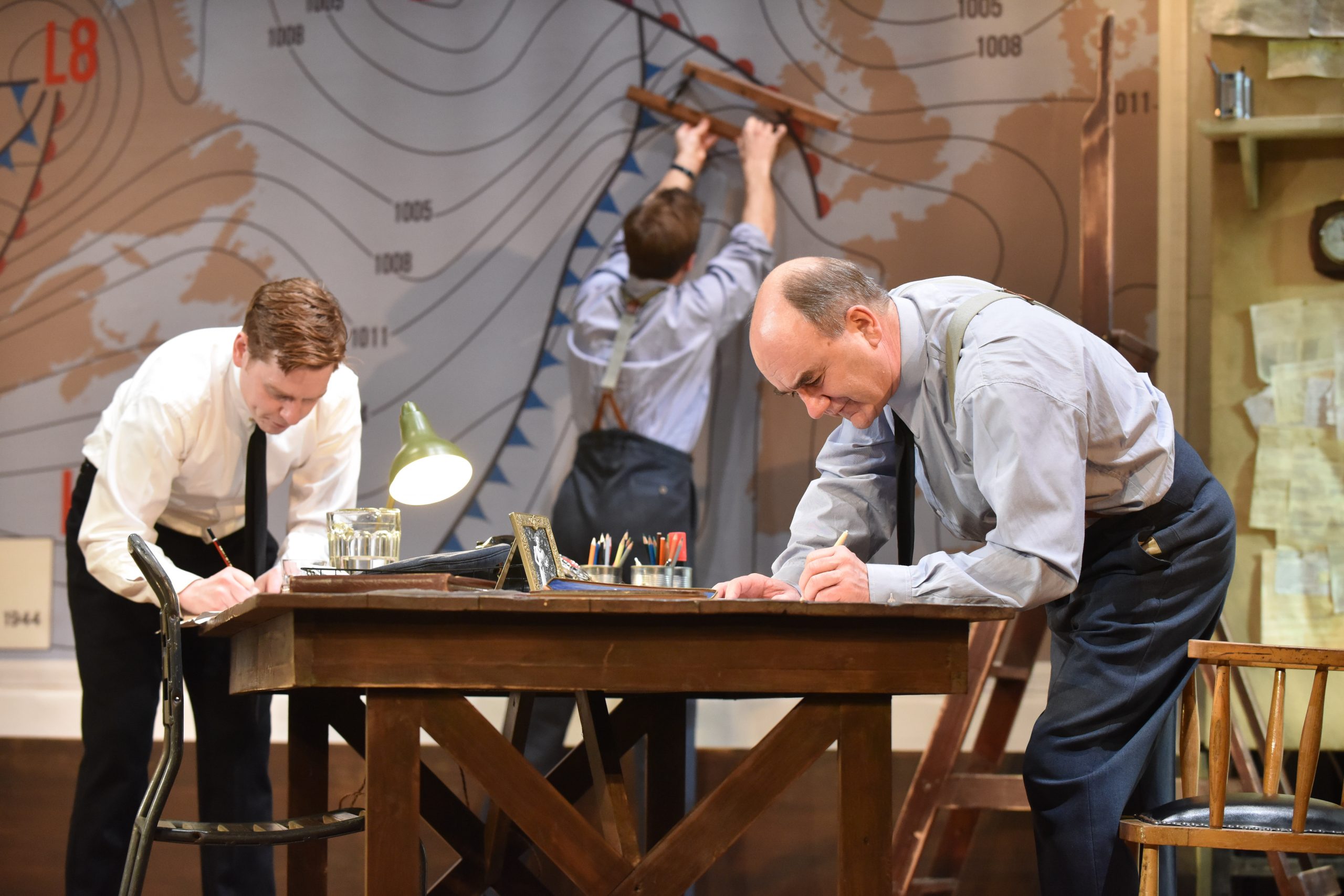Who knew meteorology could be so compelling on stage? David Haig, author and star of Pressure, obviously did. The play is about James Stagg, chief meteorological adviser to Commander Eisenhower, and his courage to stand up for what he believed in. He was crucial in bringing about the successful launch of ships bound for Normandy on the D-Day landings. It was, as Haig puts it, a thriller about the weather.
Haig’s depiction of the bumbling, short fused, pessimistic Scottish weatherman was distinctive and engaging. He commanded the stage with quick humour and silent repressed rage for his disagreeable colleagues. Throughout the story, Stagg constantly has to earn the trust of his colleague Colonel Krick, and his boss Eisenhower. Stagg’s trust in his own convictions was admirable given that the cost of these convictions was to ultimately delay D-day.
As for the rest of the performers, Malcolm Sinclair who played Eisenhower was excellent as the confident and fierce commander whose swagger was endearing and off-putting in equal measure.
The part of Kay Summersby, played by Laura Rogers, lacked sufficient character development. Her personality was endearing and she is shown in the play to provide vital emotional support to both Stagg and Eisenhower, but her overall individual contribution to the main objectives in the story was insubstantial. She was the clerical assistant, continually making the tea and coffee for the other characters involved. She did not have a great deal of responsibility within the plot, and consequently her character became less engaging as the story progressed. Perhaps one of the trappings of representing a fictitious account of real events is some characters in the story simply do not have a very engaging contribution to said events.
Furthermore, the last half hour of the play could have been condensed, as by halfway through the second half the dramatic climax had been reached. Thus, the remainder of the play lacked momentum and consisted of Summersby, Eisenhower and Stagg reminiscing about their past and worrying over the projected D-day casualties.
That being said, Pressure was effective due to its relatable, humorous characters and its crackling dialogue. The emotion, particularly from Stagg in a scene where he burned himself by dropping a coffee cup, suddenly overcome with the stress of not knowing the outcome of his wife’s pregnancy, is alarming and powerful, emphasising how history’s greatest victories can be traced back to people with the weight of the world on their shoulders.
Pressure
King’s Theatre
Runs until 17th February
Image: Robert Day

